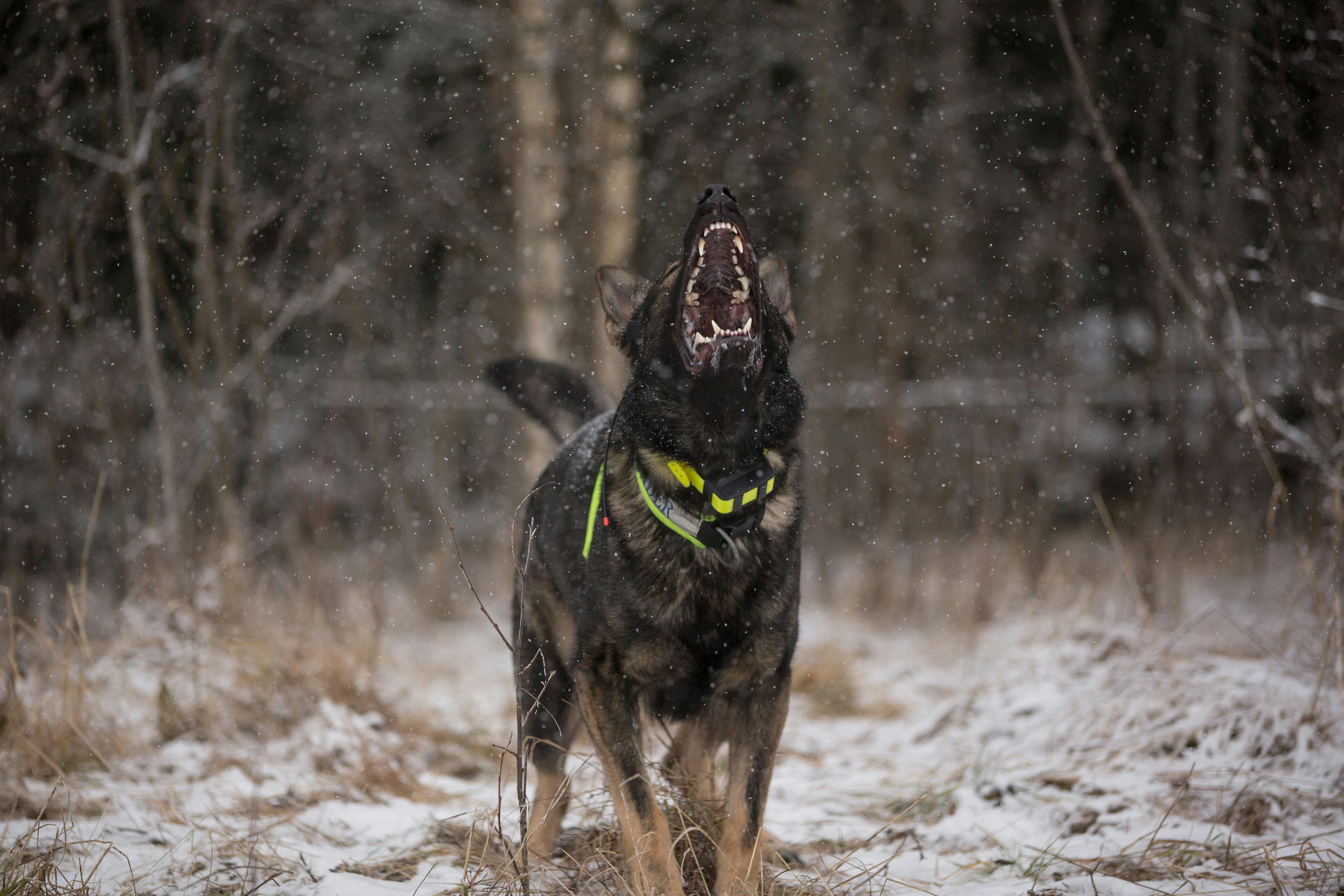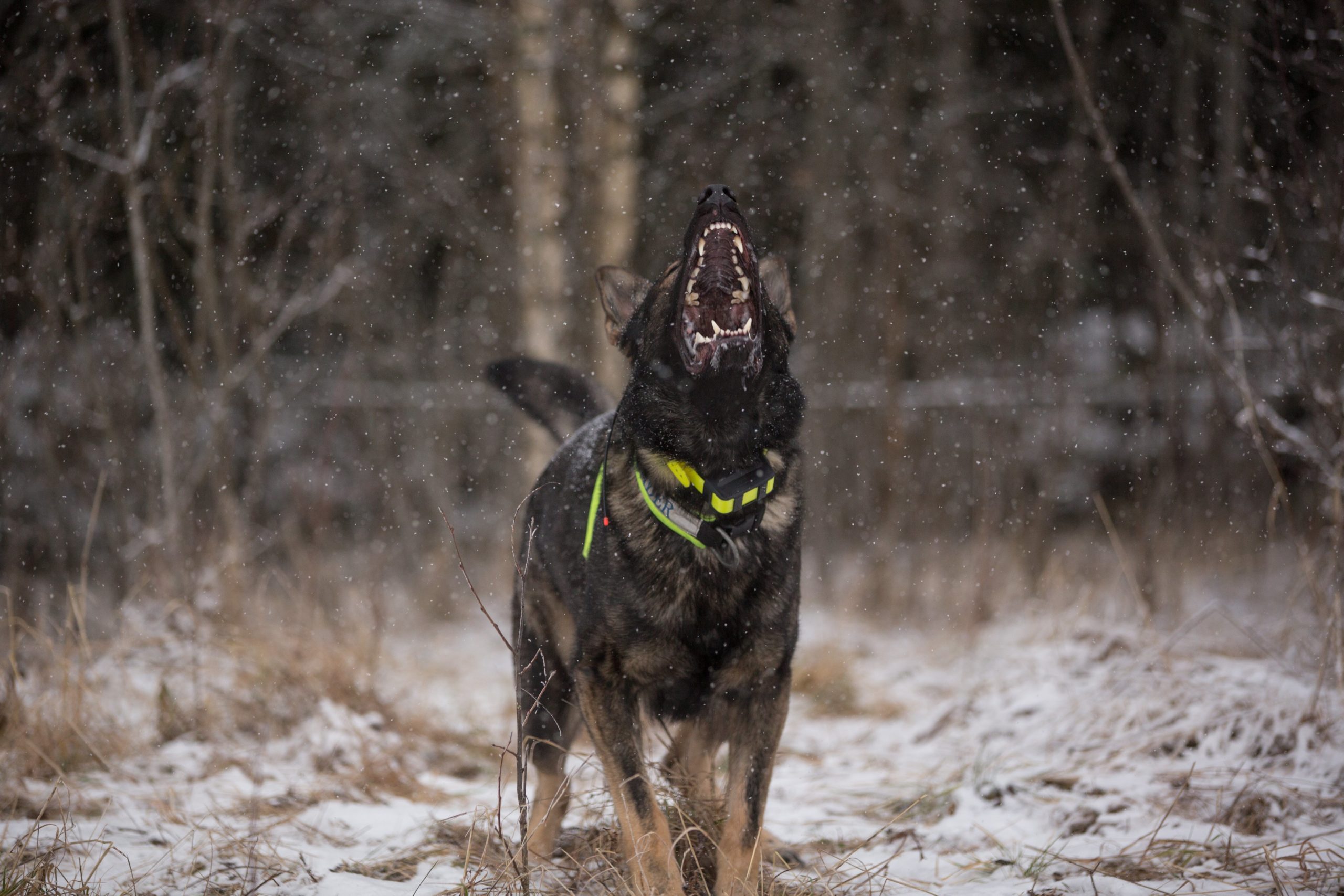
Is your peaceful sleep interrupted by the incessant barking of your dog in the dead of the night? You’re not alone. Many dog owners wonder why their pets suddenly become vocal during the nighttime hours. In this article, we delve into the possible reasons behind this puzzling behavior.
Understanding the reasons behind night-time barking
While there can be multiple factors contributing to your dog’s nighttime barking, one common explanation is their heightened senses. Dogs have a keen sense of hearing and are more alert during the quiet nighttime hours. This increased sensitivity makes them more prone to hearing stimuli that are normally unnoticed during the day, such as distant sounds, wildlife, or even the rustling of leaves.
Additionally, dogs are naturally territorial animals. They have a strong instinct to protect their territory and bark as a means of communication. During the night, when the surroundings are quieter, dogs may become more vigilant and bark to ward off potential intruders or alert their owners to perceived threats.

Boredom can also play a significant role in night-time barking. Dogs, especially those with high energy levels, require mental and physical stimulation throughout the day. If they are not adequately exercised or mentally stimulated before bedtime, they may resort to barking as a way to release pent-up energy or seek attention.
Separation anxiety and its impact on night-time barking
Separation anxiety is a common issue among dogs and can manifest itself in various ways, including excessive barking at night. When dogs experience separation anxiety, they become distressed when left alone, leading to behaviors such as barking, whining, and destructive chewing. Night-time barking can be a cry for attention and a way for anxious dogs to cope with their feelings of loneliness and insecurity.
To address separation anxiety-related barking, it is essential to gradually desensitize your dog to being alone and provide them with a safe and comforting environment. This can be achieved through crate training, using calming aids such as pheromone diffusers, and gradually increasing the duration of time spent apart.
Fear and anxiety as triggers for night-time barking
Fear and anxiety are powerful emotions that can trigger night-time barking in dogs. Certain sounds, such as thunderstorms, fireworks, or even unfamiliar noises, can evoke fear and cause dogs to bark excessively. Dogs may also exhibit anxious behaviors like pacing, trembling, or seeking comfort from their owners.
To help alleviate fear and anxiety-related barking, it is important to identify the specific triggers and gradually desensitize your dog to them. This can be done through positive reinforcement training techniques, such as counter-conditioning, where you associate the trigger with something positive, like treats or playtime.
Physical discomfort and medical conditions that may cause night-time barking
Sometimes, night-time barking can be a sign of underlying physical discomfort or medical conditions. Dogs in pain or discomfort may bark as a way to communicate their distress. Issues such as arthritis, dental problems, urinary tract infections, or gastrointestinal discomfort can contribute to night-time barking.

If your dog’s night-time barking persists or is accompanied by other symptoms, it is crucial to consult with a veterinarian. They can conduct a thorough examination to rule out any underlying medical conditions and provide appropriate treatment.
Training techniques to address night-time barking
Addressing night-time barking requires consistent training and patience. Positive reinforcement techniques, such as rewarding your dog for calm behavior and ignoring barking, can be effective in modifying their behavior. It is important to avoid punishment-based methods, as they can increase anxiety and worsen the barking issue.
Establishing a bedtime routine and providing your dog with mental and physical stimulation throughout the day can also help reduce night-time barking. Engaging in activities such as puzzle toys, obedience training, or interactive play can tire your dog out and promote relaxation at night.
Creating a calm and secure environment for your dog at night
Creating a calm and secure environment is crucial in minimizing night-time barking. Providing your dog with a comfortable bed in a quiet area of the house can help them feel safe and secure. Using white noise machines or calming music can also drown out external noises that may trigger barking.
Additionally, ensuring that your dog’s basic needs are met before bedtime is essential. Make sure they have access to fresh water, have been taken out for a bathroom break, and have had enough exercise and mental stimulation to tire them out.
Seeking professional help for excessive night-time barking
If your dog’s night-time barking persists despite your best efforts, it may be necessary to seek professional help. An experienced dog trainer or animal behaviorist can assess your dog’s behavior, identify the underlying cause of the barking, and provide a tailored training plan to address the issue.

Remember that excessive barking can be a symptom of an underlying problem, and it is important to address the root cause rather than simply suppressing the barking itself.
Conclusion and key takeaways for managing night-time barking
Understanding the reasons behind your dog’s night-time barking is key to effectively managing the behavior. Whether it is heightened senses, separation anxiety, fear, physical discomfort, or boredom, identifying the root cause allows you to take proactive steps towards a peaceful night’s sleep for both you and your furry companion.
By providing your dog with adequate mental and physical stimulation, creating a calm and secure environment, and implementing positive reinforcement training techniques, you can help reduce night-time barking and strengthen the bond between you and your canine friend.
Remember, managing night-time barking requires patience, consistency, and understanding. With time and effort, you can create a harmonious environment where both you and your dog can enjoy restful nights free from disruptive barking.
